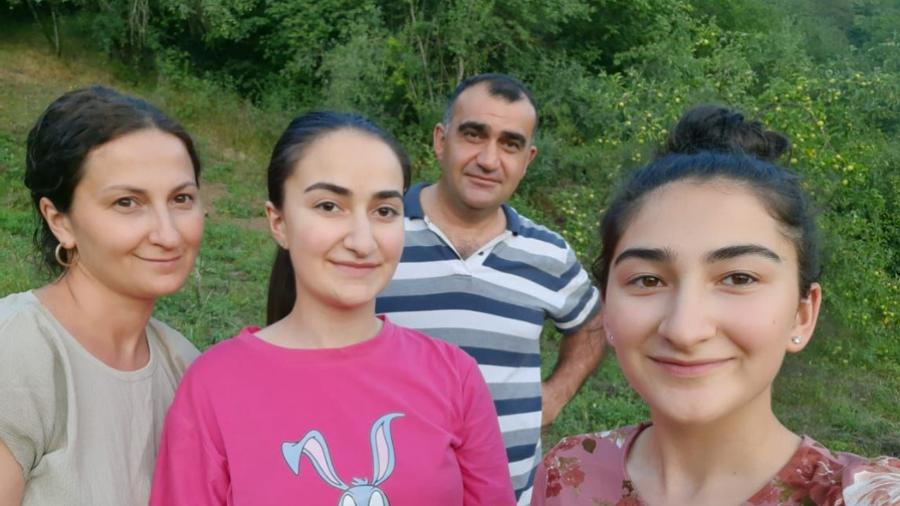
When the smallest thing starts to mean something significant: The everyday life of separated Melkumyan sisters in blockaded Artsakh
For about 7 months or 231 days or 5544 hours, the Melkumyan family, residents of Mokhratagh village, Martakert region, Republic of Artsakh, has been separated. Because of the illegal closure of the Lachin Corridor by Azerbaijan, 17-year-old Nare lives with her mother, Narine, and grandfather, Albert, in Mokhratagh, and her sister, 19-year-old Mane lives in Yerevan (where she moved to study) with her father, Aram.
7 months or 231 days or 5544 hours. I repeat, trying to imagine what kind of test it is for a person who has lived his whole conscious and unconscious life in the same family, under the same roof, under the same sky.
Astghik Keshishyan, my long-time friend, a journalist, and now Nare's teacher of Armenian language and literature, is also facing the same problem. More precisely, a "former" teacher, as she moved to Mokhratagh with the two-year "Teach Armenia" program. The term of the program has ended, but not the problems. For almost 2 months, Astghik has not been able to return home.
In the midst of helplessness and despair, together we tried to find the strength to tell about the people left here and there in the corridor due to the blockade, their daily life, and their feelings. So we decided to start with the family of her student. She's there in Mokhratagh, I am here in Yerevan.
For the first time, the family celebrated the New Year separated
Nare that lives in Mokhratagh, says that on December 12, when she learned about the closure of the road connecting Artsakh to Armenia, she did not think that it would last so long, and assumed it would be over in 3-4 days.
"At the beginning of the blockade, I wasn't so desperate, because I still didn't have a general idea about all this, but in the meantime, I realized that we don't have the opportunities that the children have elsewhere, even in Armenia."
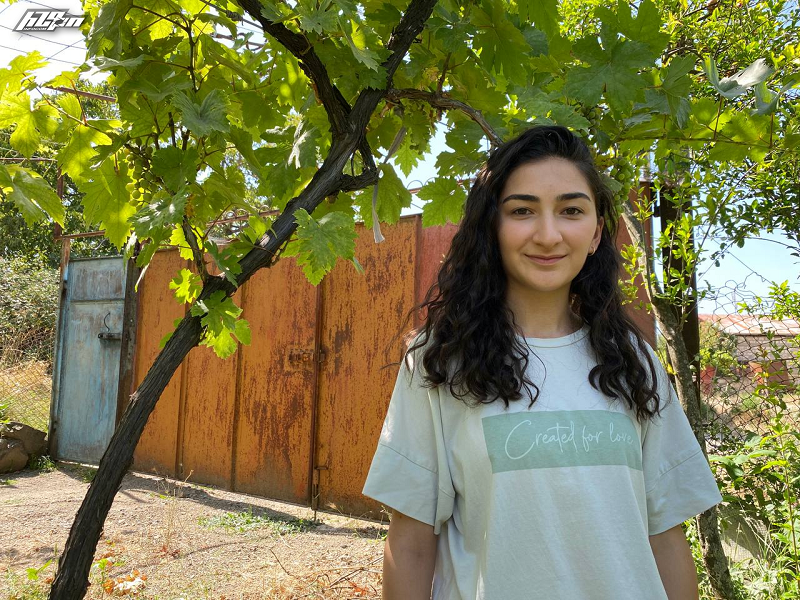
Nare Melkumyan
Her sister Mane, who moved to Yerevan to study, had the same hope, considering that the Azerbaijanis had closed and opened the road before that.
"It kept getting longer all the time, and I couldn't have imagined that I would celebrate the New Year in Yerevan. Since it was already the holidays, and I thought I would go to my relatives, I bought Christmas gifts for everyone", tells Mane, adding that she's kept the gifts wrapped until now, hoping that she returns home and finally gives them."
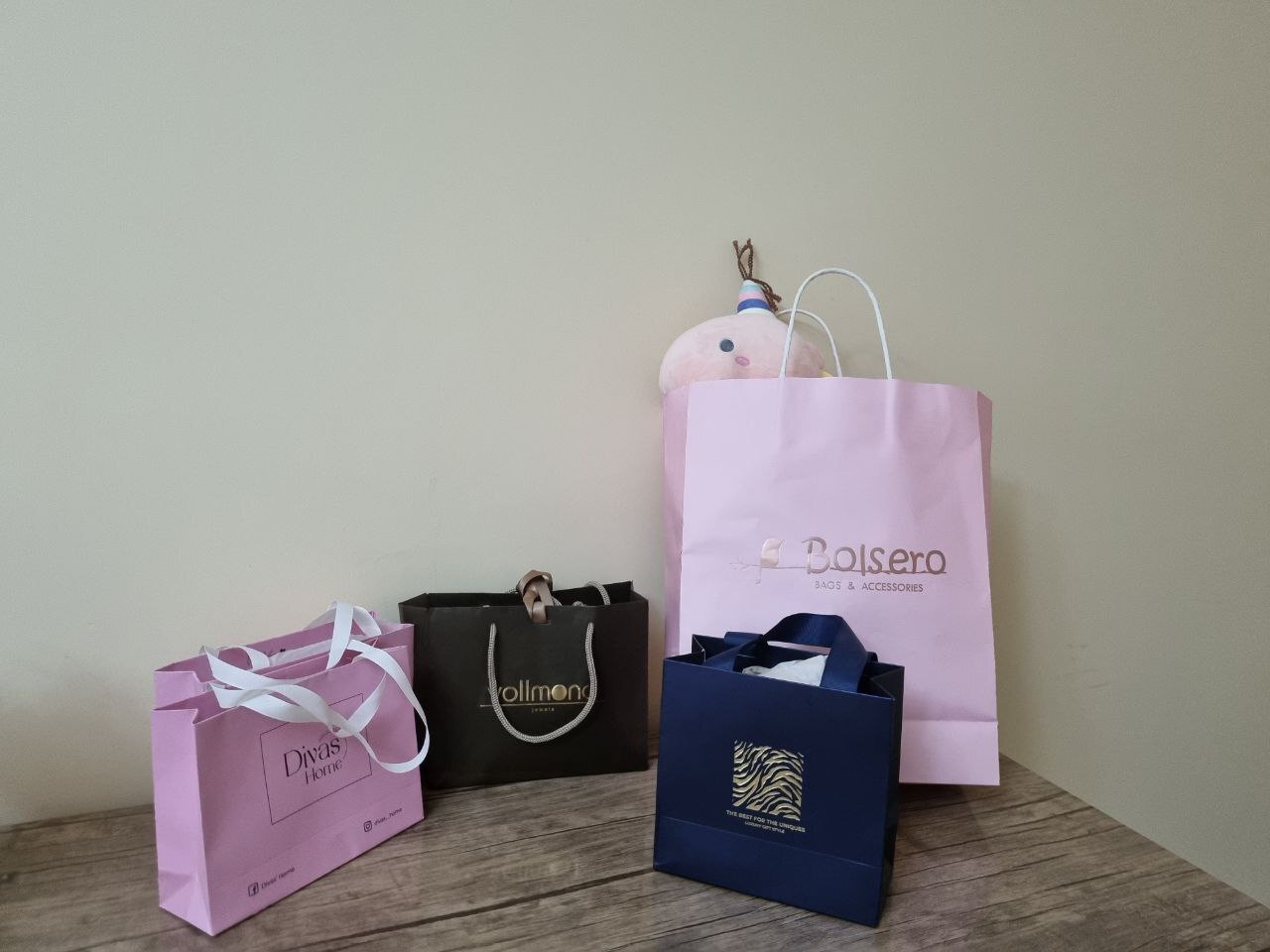
The Christmas presents
According to the sisters, it was the first time that their family celebrated the New Year separated.
"It was terribly sad. We celebrated it online, somehow trying to complete each other through online communication, but it's not what it should be... My mother also sometimes gets very discouraged, I try to calm her because when I see that she is down, I get even more down. We comfort each other, trying to give optimism to each other," says Nare from Artsakh, adding that the longing is already suffocating, because they are a very affectionate, a very good family, and being separated is very difficult.
The siege taught me to value my relatives even more
Nare, who's in the 12th grade, tells that a lot has changed for her during these 7 months.
"I started to think more about life, how different people's lives can be, how much things can change, how the tiniest thing can start to seem significant to us, and we can become happy from the smallest thing. For example, in the beginning, when they wouldn't bring fruits yet, one of the teachers sent mandarins with mom, and I wanted to jump like a little child, or even some Kinder, which I love very much, they bought it for me, I became happy. Before the blockade it was normal, we were not happy about it, now everything is of great value to us."
Mane too feels such changes in her life. She is a student of the Yerevan State Medical University and had moved to Yerevan months before the siege. Initially, she lived alone, but in December her father came on business, and when the Azerbaijanis closed the road, she stayed with her daughter. "At first I was very calm, I didn't take it very hard that I live alone, because I knew that I can always go to my homeland or my family members can visit me, but then, when I realized I can't, it started to get more and more difficult because of the longing. I constantly talk to my relatives, and I like to make videos with our old pictures and videos. I watch them all the time in hopes to see them again."
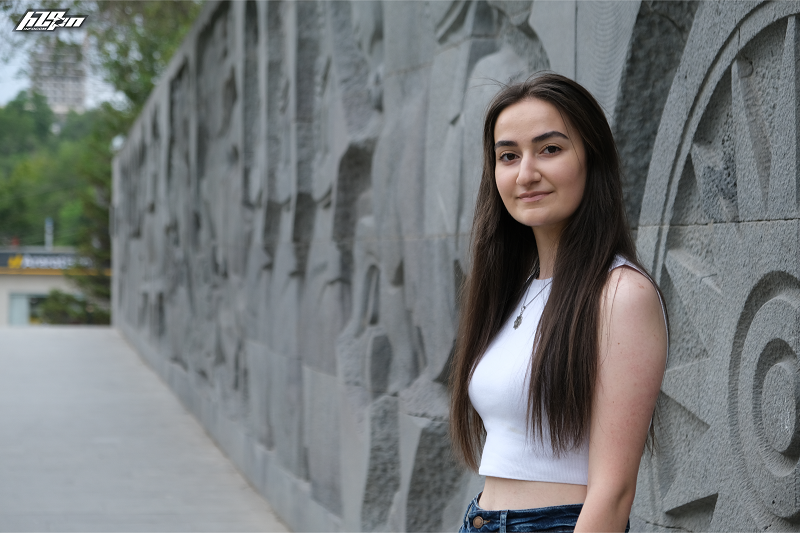
Mane Melkumyan
However, according to Mane, the blockade also taught certain lessons. "Perhaps the only good thing during this time is that we started to value our relatives more, to love more, say about it more, miss, and wait because before that we were maybe a little less emotional, we didn't often say it, but now we emphasize it more."
The older sister says that she and her father support their mother and sister, and they support them back.
"We try to support each other, but my sister and mother probably take it harder, cause they are more sensitive, I try to be stronger, to give them hope," says Mane, reminding that hope dies only in the end. It's the hope that keeps them alive.
"My father is also trying to be stronger, mostly he is silent, he doesn't say anything, he doesn't even talk about the war, but, of course, he feels a lot of pain, seeing all this, but as a man, he tries to be by our side."
First question: what did you eat today?
Mane talks to her family on a daily basis, and the first thing she asks is what they ate today.
"Sugar, salt, flour, you can't buy all that in the village, or they are available at such prices that it is difficult to get them... In terms of harvest, although this year was not so good because the seasons were not good, the people of the village have the opportunity to create and grow their own crops, cause it is more difficult in the city."
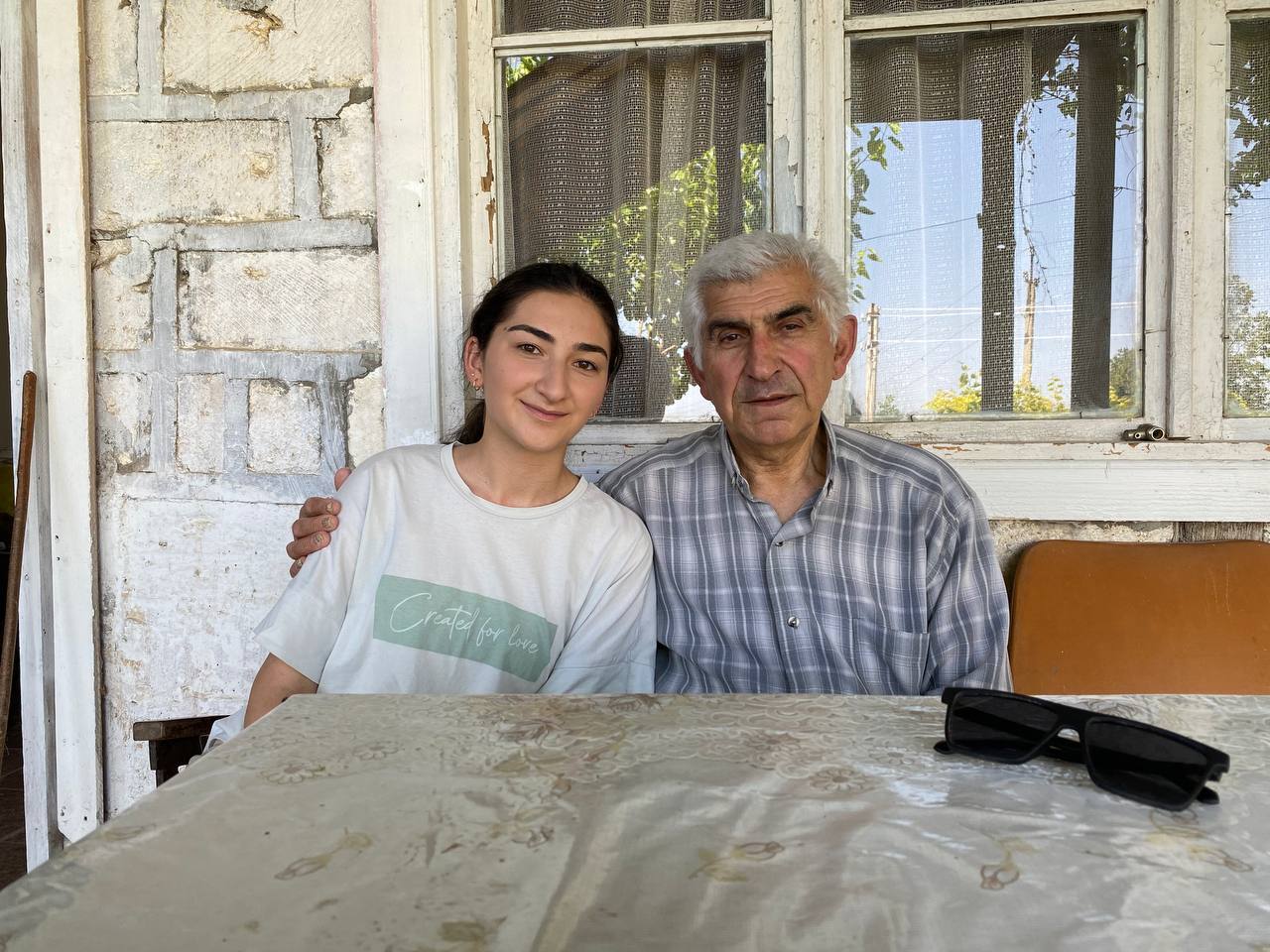
Nare with her grandfather Albert
Nare says that in the beginning of the siege when they still had food coming to the village, they could buy things with coupons and live on them, but now no goods are coming at all, and the situation in the village is bad.
"Recently, they only bring watermelons and similar things, but there is no product that you can buy, not even in the village, nor in Stepanakert. Though I haven't gone to bed hungry yet, we still manage to live as a family, but I'm a big sweet tooth, maybe I'm missing sweets when browsing Instagram, I constantly see cake or sweets that we don't have here, and that I want a lot, but there is none. We try to bake something at home."
Nare's friends help her to get distracted from all this.
"I spend time with my friends, we organize some things in the village, we go out, it motivates, and at that moment you start to forget what is happening around you, I just try to be happy with them, to break away from reality."
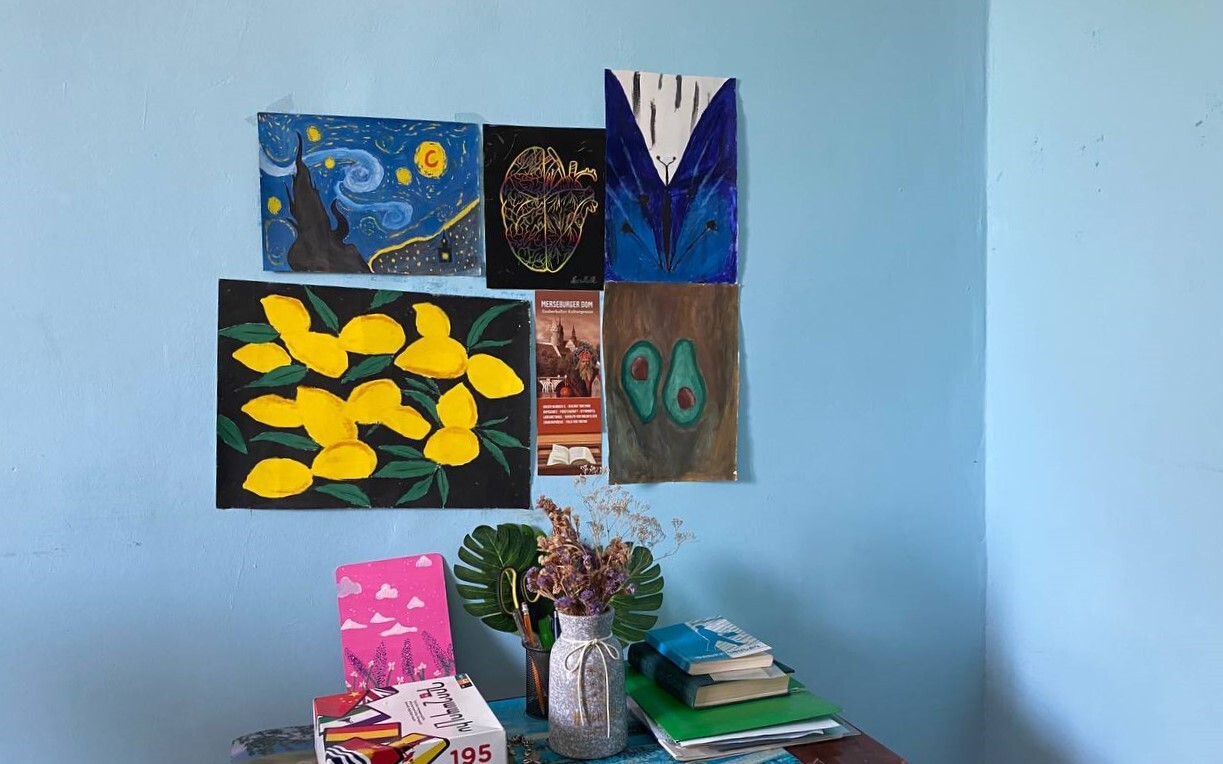
Nare's pictures
As for her part, Mane tries not to panic, not to cry too much, but she says she couldn't hold her emotions back on her birthday as for the first time she was without her mother and sister.
"My father had to work and I was going to be alone. Everyone said I should go somewhere with my friends and celebrate it, but I said "No, I won't celebrate it." My relatives living in Yerevan made a surprise, they came that day so that it wouldn't be so hard, but it wasn't that same anyway, because it was hard without my mother, my sister, and my homeland."
The biggest dream - peace
Mane says that when she moved in September, the first thing she started to miss was her village and her homeland. "I was constantly talking to my relatives, and I didn't miss it that much, but I missed my homeland, my village the most, I always wanted to see its nature, our home... Yes, I miss my homeland the most."
According to Mane, the situation of Armenians in Artsakh is so bad now that it is not okay for Armenians to be indifferent to it.
"I want all of us not to be indifferent to our motherland, because all this that is happening in Artsakh may happen in Armenia one day, and that is much worse, we need to be a little more vigilant, love our homeland a little more, and not just love with toasts, but invest a small part of ourselves in our homeland, and then maybe something will change", says Mane, reminding the periods of the history and hoping that if now it's bad, maybe a time will come when everything will be fine and everyone will be happy.
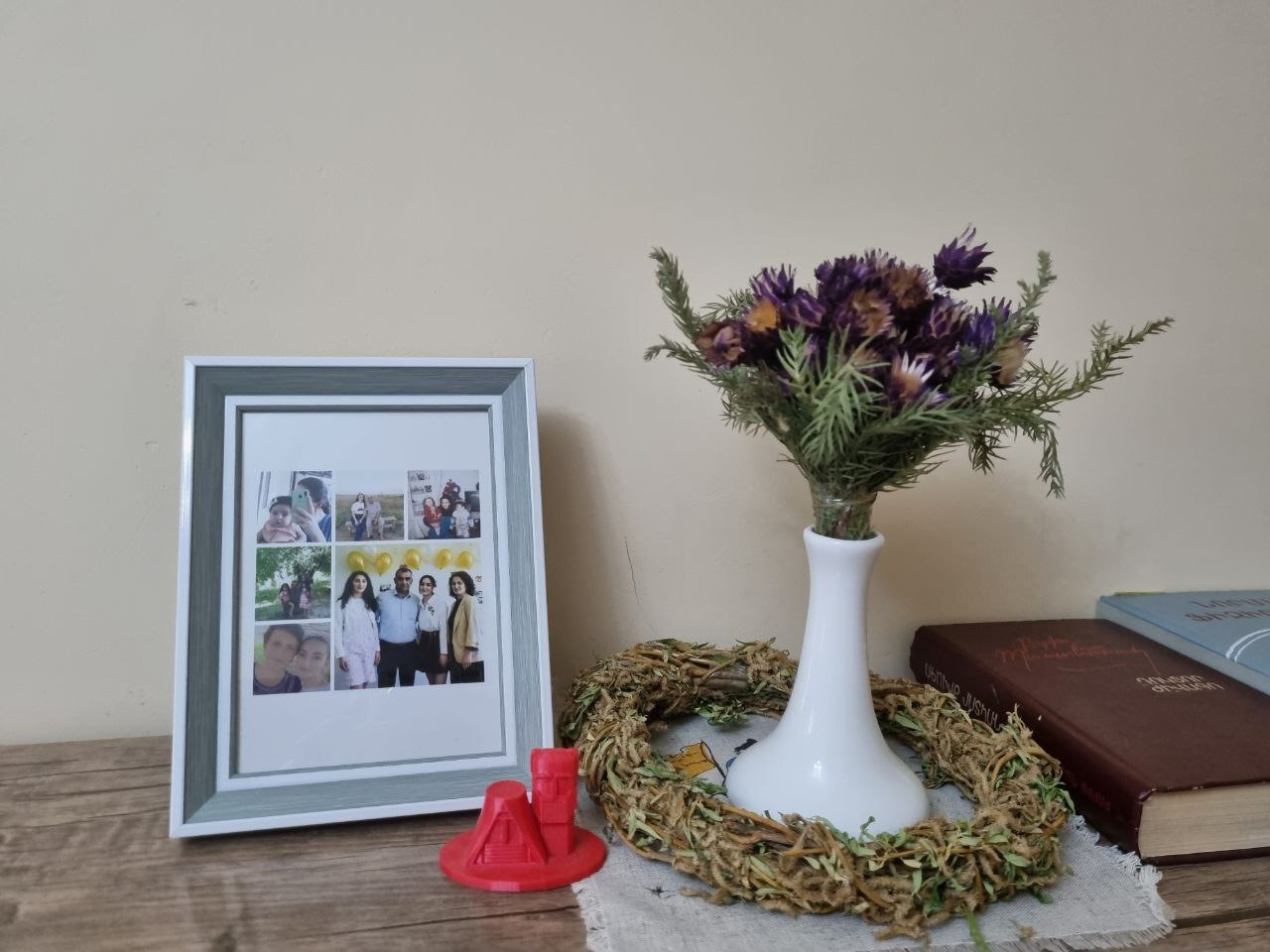
Mane's desk
The question about the biggest dream does not take long to think about. Independently, far from each other, the sisters mention the same dream with the same words.
"Peace is needed not only in Artsakh, but also in Armenia, and in general, in the whole world. If there is peace, everything else will happen over time," says Nare. Mane adds: "We need peace all over the world, if possible."
If the road opens one day
Nare says that if she suddenly reads the news that the road has been opened, she will probably not believe it at first. "It has become a kind of unbelievable news for all of us, but after checking, I will collect a couple of clothes, and finally we will go to Yerevan."
Mane, in turn, plans to return to her native village. "I know that I won't be able to stay for a very long time because I am studying in Yerevan, but it is very important for me to see everything for at least 1-2 days because, after the war, there is a constant fear in me that I may not see my home, my homeland, just as now we cannot see a part of our homeland."
Future plans related to Artsakh
Nare will finish school this year․ She wants to become a designer, for which she started attending classes. However, it has great difficulties.
"On the first day, I was thinking a lot about how I should get to Martakert and then go to Stepanakert from there. Somehow we managed to find a person who was going to Martakert, I went with him, and I went to Martakert with him several more times, as well as by bus, but the question of coming back was very difficult because there were no taxis, I mean, there were, but they wouldn't come to the village, as they worked in the city because of the lack of the fuel. I went like that for a month, sometimes I stayed in Stepanakert, in order not to have to go all the time. For a week, I haven't been going as I'm trying to continue training online, but during the day, especially when there are power outages, I get very upset, that darkness brings a kind of sadness, and I start to think more about the situation, more despairing thoughts come," says Nare, half-joking, and half-serious at the same time, adding that when they light a lamp or a candle, the evening becomes romantic. According to her, the blockade has no other positive side.
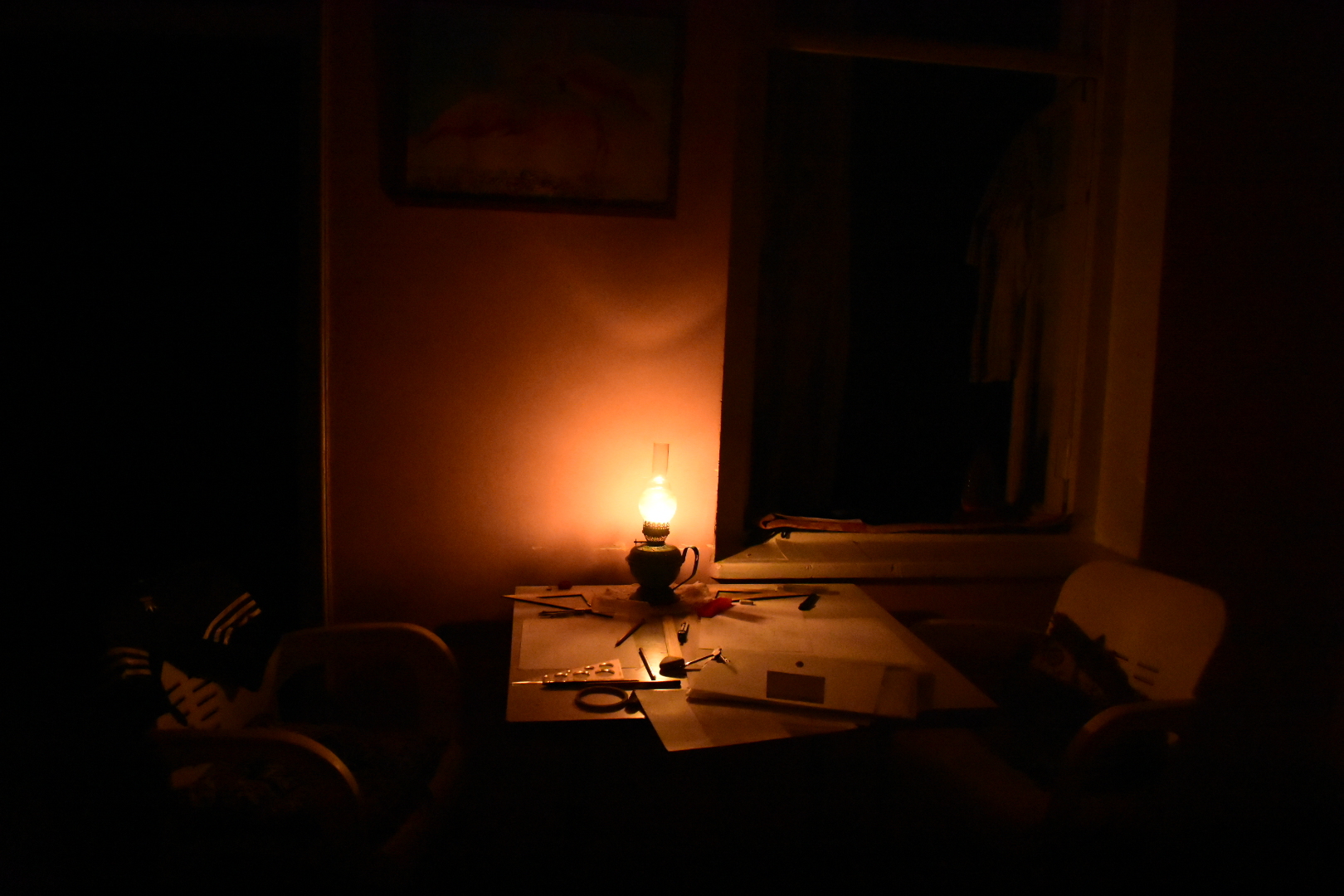
During the power outage
Nare was not motivated at first, but she says that she tried to pull herself together, to think that what she is doing is for her future, and the plans for that future are related to Artsakh.
"To study and become a designer is in my plans. Of course, I know that I won't be able to study here, because there is no opportunity to get good knowledge here, and the fact that my father and sister are in Yerevan is an excuse for me to study there too... But I don't want to live there, because this is my home, I grew up here, I will live here, I never wanted to leave it, even when I go to another place for a few weeks, for example, Stepanakert, I feel a great longing for my house," says Nare.
While Mane is on vacation, she is trying to find a job in Yerevan, and is engaged in self-education to fill her free time. Apart from that, the youth of Artsakh in Armenia have created an online group called "Kids far from home", they participate in demonstrations and rallies together. Mane says she doesn't know if it will help or not, but she will at least be sure that she did something for her homeland and was not indifferent.
"I'm surprised that people say - what are they doing, it won't help anyway. Yes, I agree. There were rallies in December, we participated, the youth of Artsakh organized it, but I realized that it didn't help. Now I can say that it won't help anyways so I'm not doing it. But still there is hope that maybe someone will pay attention."
Mane is being honest - after the 44-day war, she thought about living in Yerevan, she thought that the war would start again in Artsakh, but about a year ago, everything changed. Now she wants to live only in Artsakh.
"I realized that I want to study in Yerevan, come and go because this is my homeland, and I love Yerevan, I love Armenia, but I imagine my life, my goals, my mission in Artsakh, I imagine that I will become a doctor, I will go to Artsakh because very few people go to Artsakh, and in fact, Artsakh always needs a doctor," says Mane, knowing with certainty that she will be one of those doctors who will live in Artsakh and help their compatriots.
Milena Khachikyan
Astghik Keshishyan
Photo: the Melkumyan family

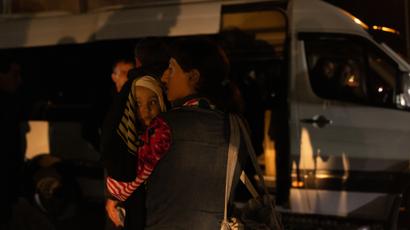
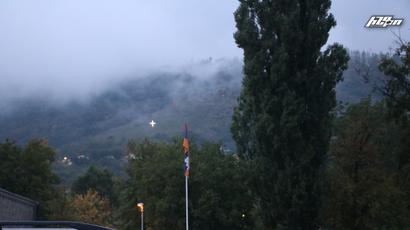
!["I don't want my children to starve, to be subjected to genocide, I want to live in Artsakh, to build our Homeland" [Blockade from the inside]](https://cdn.infocom.am/enlarge?file=2023-08-10-4865f192-ab13-4e84-beab-6232fbca7831.jpg&type=jpeg&width=410&height=230)
!["It's truly unbearable to be captive on your own land; everyone wants to live, yet the possibility of life is uncertain" [Blockade From The Inside]](https://cdn.infocom.am/enlarge?file=2023-08-07-4da13b91-9ae8-4497-a322-a6173bea598d.jpg&type=jpeg&width=410&height=230)
![A mother of five from Artsakh prepares sweets using the last remaining ingredients at home and shares them with neighboring children. [Blockade from the inside]](https://cdn.infocom.am/enlarge?file=2023-08-07-a38344bf-93f4-46f3-be0d-27ad2e27cf27.jpg&type=jpeg&width=410&height=230)
!["When we are in our own country, we endure whatever comes our way; the crucial thing is that we live here as Armenians, bread and hunger, though difficult, are not the primary focus." [Blockade from the Inside]](https://cdn.infocom.am/enlarge?file=2023-08-05-465609c7-c0fd-42d2-9db7-2a568a7428a5.jpg&type=jpeg&width=410&height=230)
!["I will sleep hungry, I won't even eat sweets, but in exchange, I expect to live in my motherland, Artsakh" [Blockade from the inside]](https://cdn.infocom.am/enlarge?file=2023-08-05-ab9a84b3-3f5e-4bcd-b049-5e8660312ed8.jpg&type=jpeg&width=410&height=230)
comment.count (0)